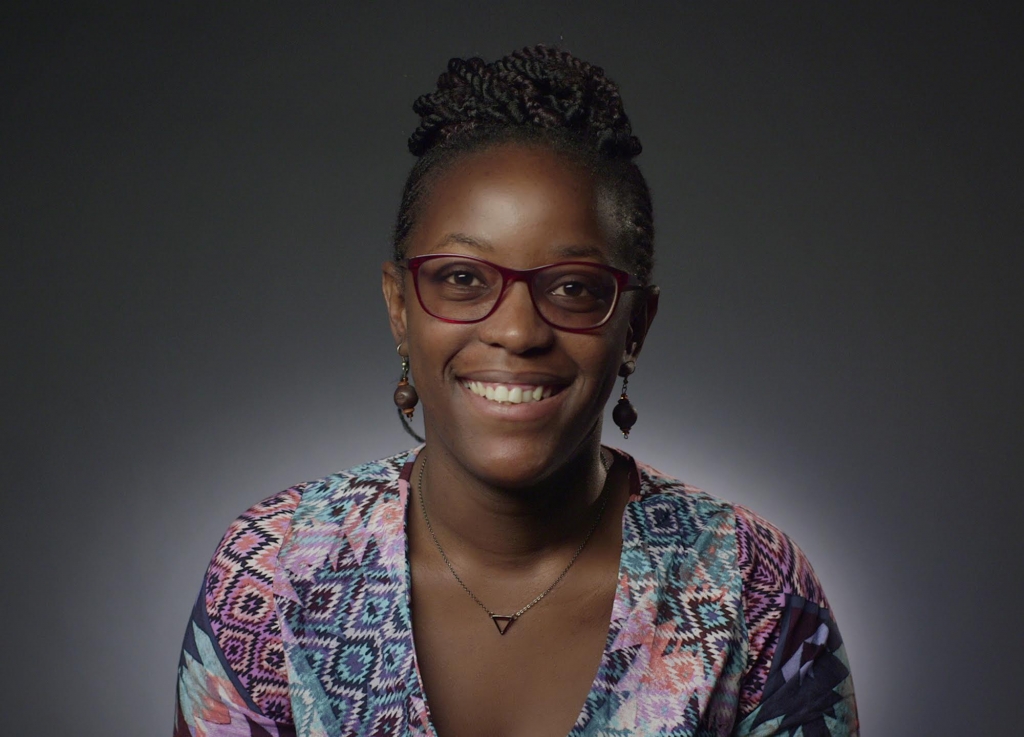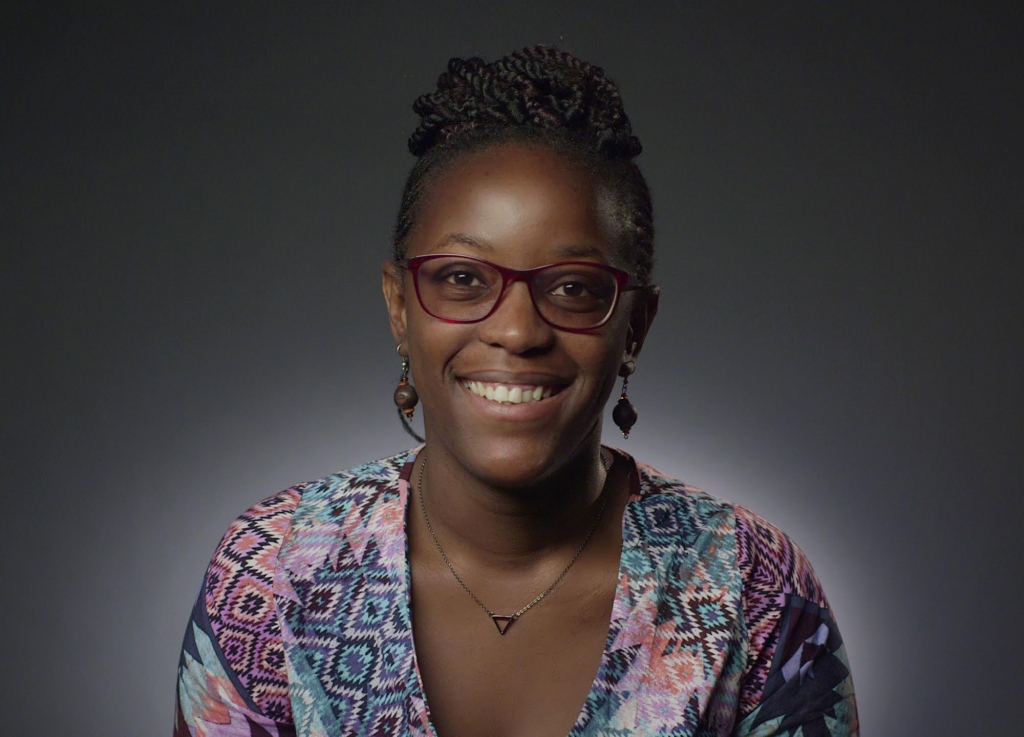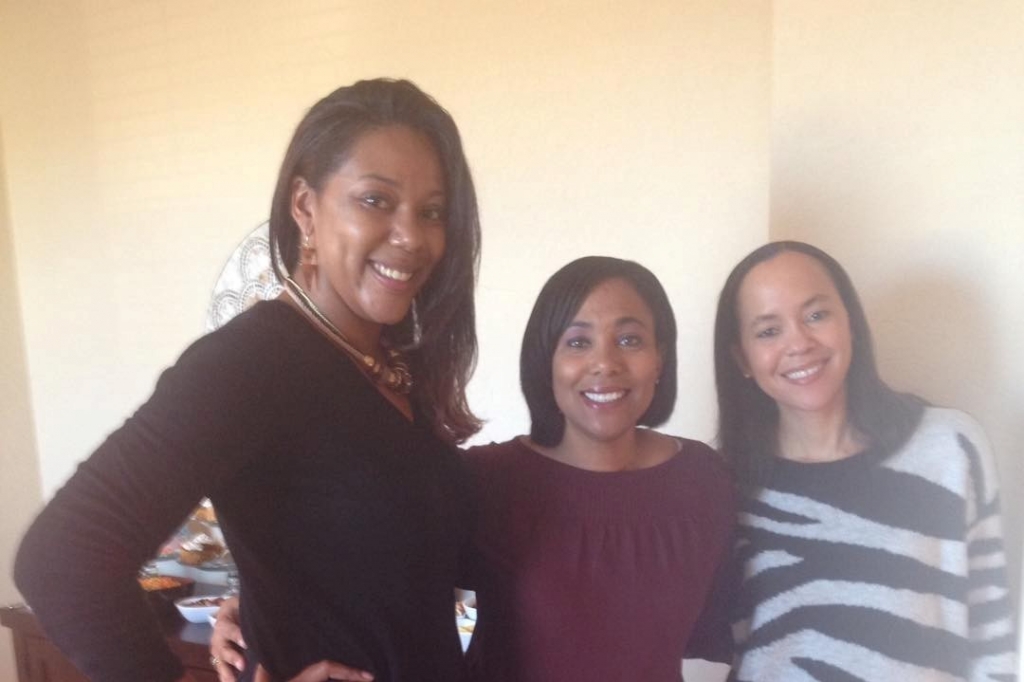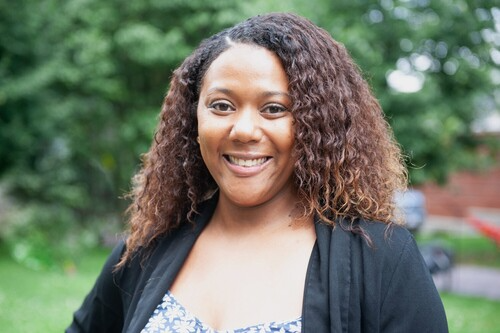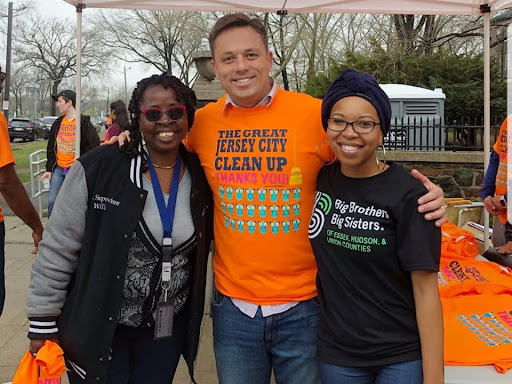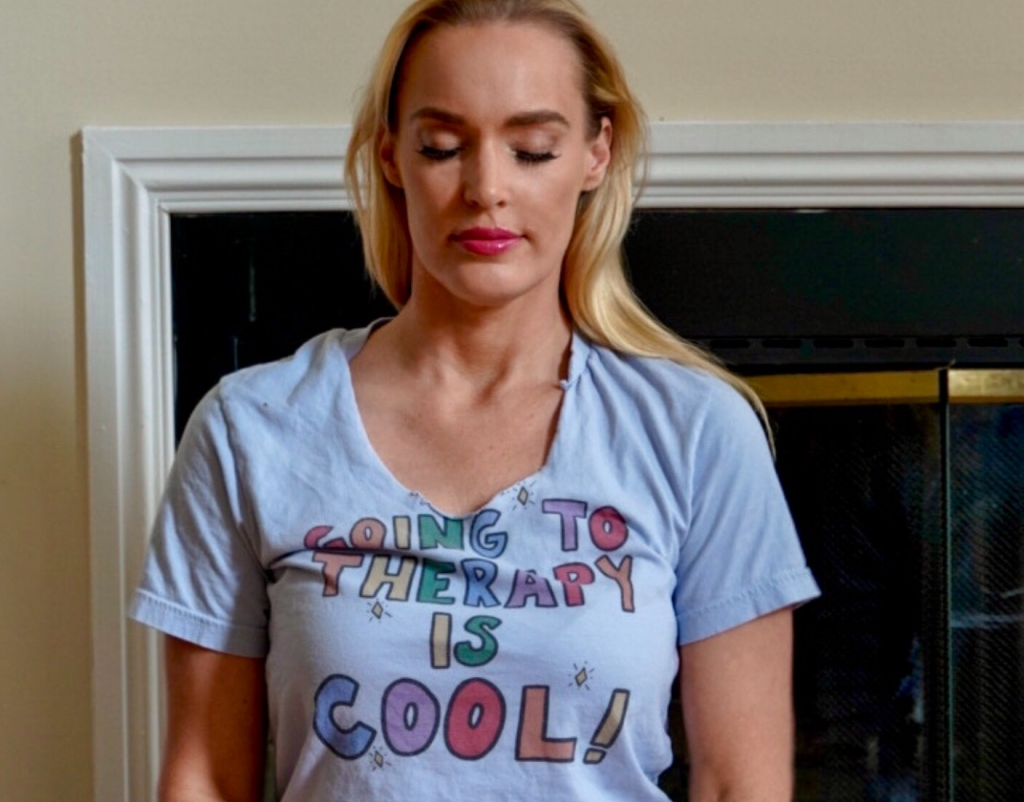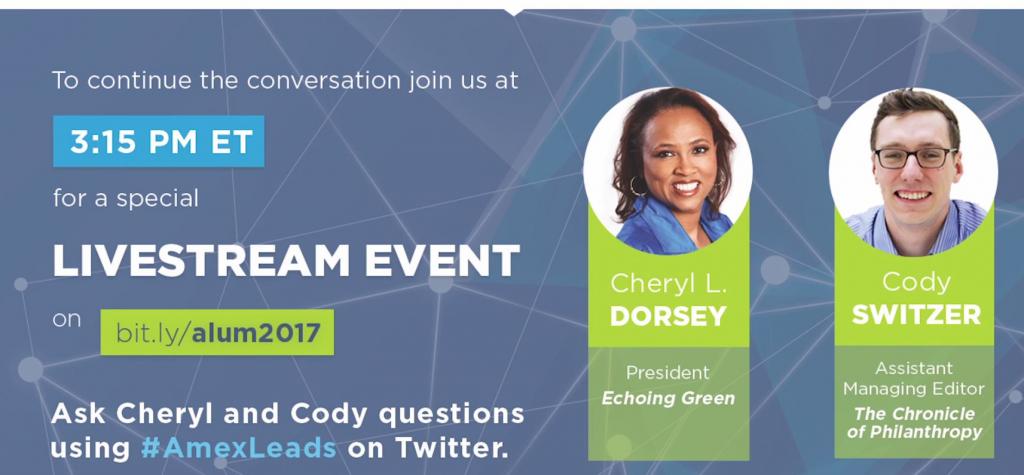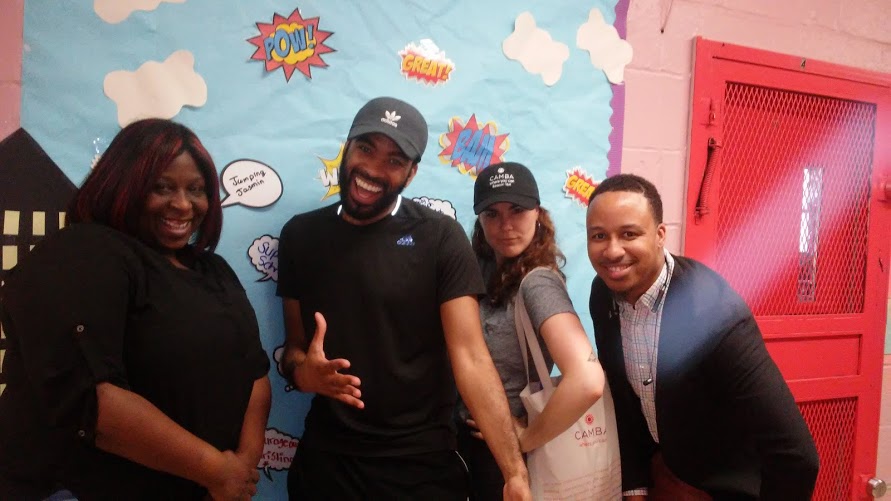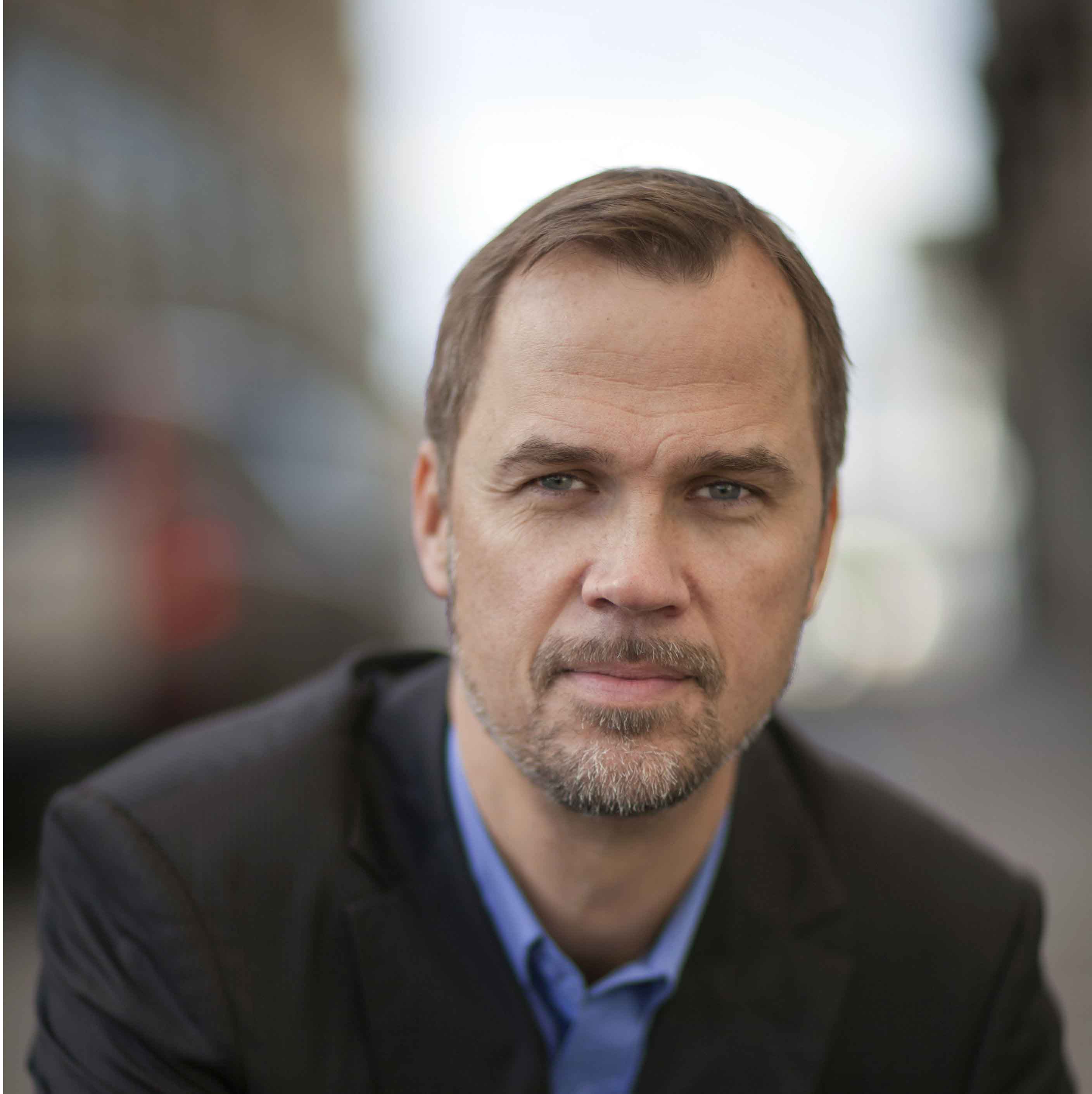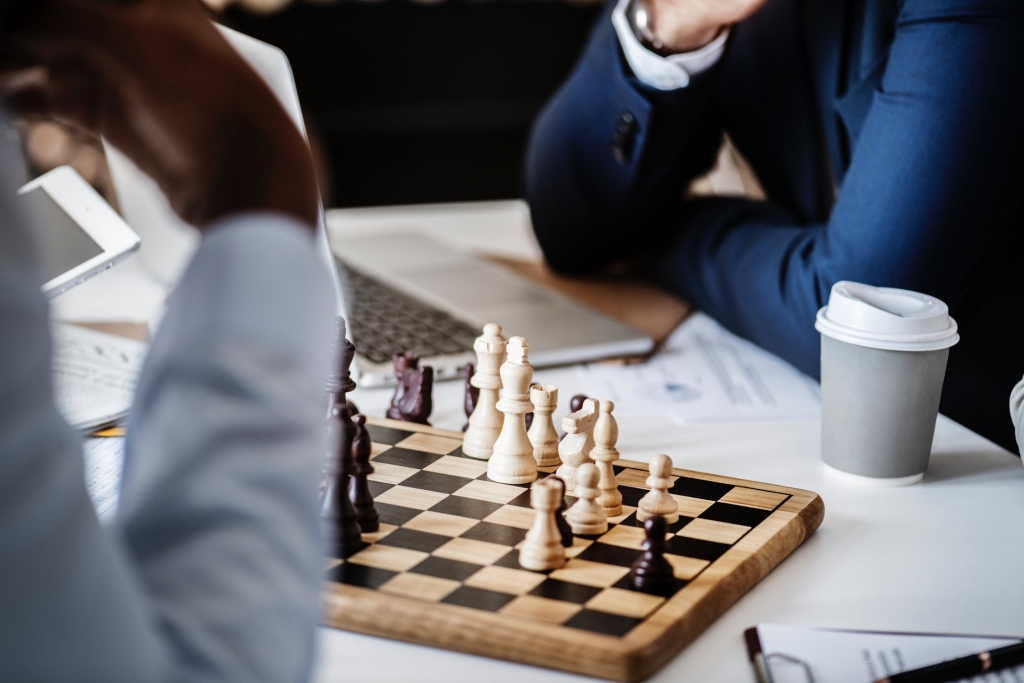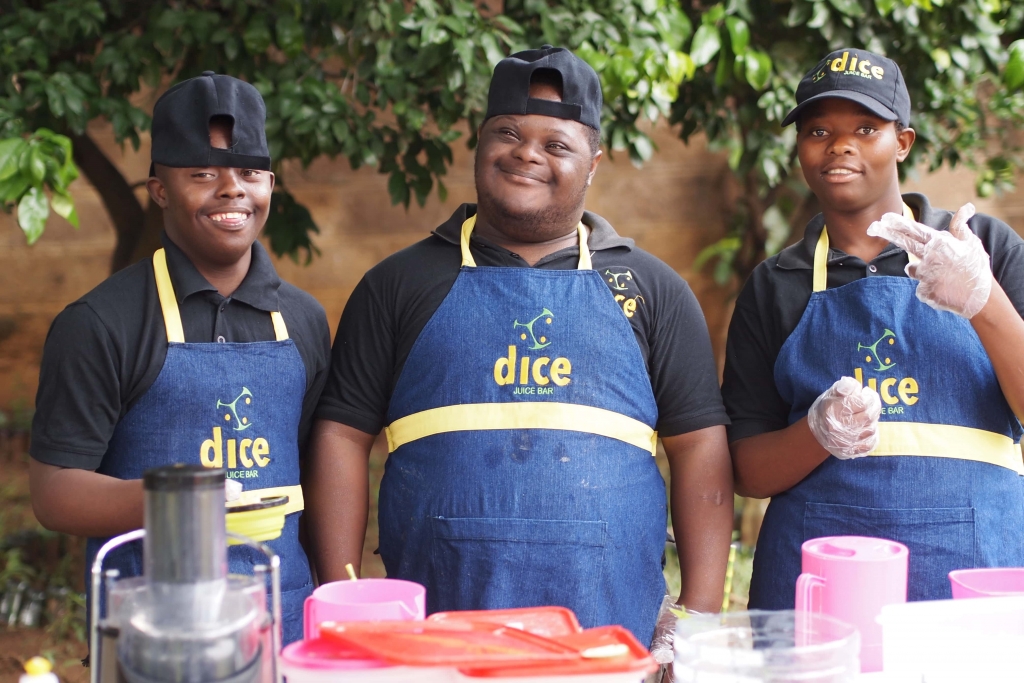
In partnership with the International Youth Foundation's YouthActionNet, we're sharing leadership journeys and conversations with Global Laureate Fellowship Alumni all during July. This is a part of our #LeadYoung series. Here is the third part.
Michelle Chimuka grew up seeing her brother struggle. Because of his intellectual disability, he and his peers were often “swept aside and thought of as un-teachable,” she says. When Michelle realized that there were no programs in Zambia for young adults with intellectual disabilities, she found her calling.
In 2014, Michelle took a leap of faith and left her full-time job to start the Sani Foundation, a nonprofit organization that helps to create opportunities for people with intellectual disabilities by designing evidence-based models and advocating the benefits of an inclusive society. In the last four years, she says she’s seen an incredible shift in culture and people’s understanding of people with disabilities.
The foundation provides people with intellectual disabilities with skills training, job supports and work-based learning. The goal is to help every trainee transition into a paid job, and to “become full members of society and independent adults.”
Currently, Michelle and her team are working to develop a curriculum for educators in Zambia so that the mission can move beyond the organization. Ultimately, her hope is that the structures, systems and learning models the team has put together over the years will benefit even more people with intellectual disabilities in Zambia, and inspire others to consider how they can aid in these learning journeys.
We spoke with Michelle as part of our #LeadYoung series, in collaboration with the International Youth Foundation’s YouthActionNet initiative. You can read her Q&A below.
Can you tell me about your work with the Sani Foundation, how you started it, and what the work and journey has been like?
We currently provide skills training to young adults with intellectual disabilities. We use a work-based learning approach, where trainees can learn skills in a practical environment and then are supported to obtain and retain jobs on the open labor market. Beyond the training and job placements, we then provide support to help people transition, making sure they understand what the requirements are, and that the employer understands how to communicate with them. We want to make sure our trainees know how to interact with their colleagues, do the job and everything they need to do. Once a person has gotten to a point of self-sufficiency, we phase out our support.
When I started the organization, it was from a point of need in Zambia, because there weren’t any after-school services for people with disabilities. We have special education schools for people with disabilities, most of which cater to younger children. Once they get to a certain age, the options and quality significantly dwindles. The result is that they sit around and watch TV all day or something like that, because people perceive them as not being able to contribute like everyone else.
We’ve shown that it’s possible for people with intellectual disabilities to succeed once they’re received a certain level of support, and to become part of society.
I think that at every level—from parents to training institutions to employers— there’s at least one big barrier. It starts with the very low expectations that everyone around people with intellectual disabilities often have, where people just assume they can’t do things. This is mostly because conventional approaches of education don’t necessarily work with people with disabilities, so people conclude that it can’t be done. A lot of what we’ve done is simply show what is possible when you take a different and person-centered approach.
We’ve shown that it’s possible for people with intellectual disabilities to succeed once they’re received a certain level of support, and to become part of society.
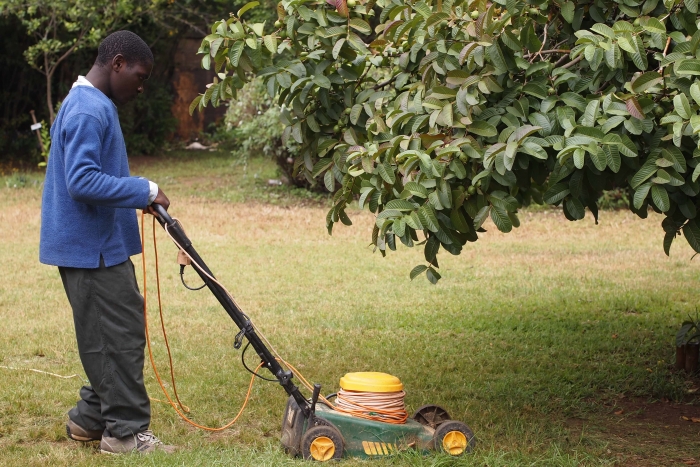
A Sani Foundation trainee working on skill development
What has your leadership journey been like as a young person?
There’s been so much learning. When I got into this work, I didn’t know anyone with disabilities outside of my own family. I had experiences with my brother and that was it. I’ve since learned all of these things about intellectual disabilities. Building that body of information and understanding has been hard work. I’m now considered somewhat of an authority on this kind of work and that’s mind-boggling because I’ve spent so much time learning about all of it, and being able to keep up with the learning myself so I can teach it to everybody else has been challenging.
I’ve always had a fascination with teaching others, or capacity-building and seeing people grow, and that’s been the most exciting part of the journey. We’ve built quite a lot out of thin air. I think that’s the most exciting thing about starting an organization. You get to create so much. The level of innovation and problem-solving is fascinating to me. I can’t imagine not doing what I do.
What impact or success are you most proud of so far?
When we started the organization, I didn’t fully believe that it was a possibility, that we could have our trainees work in companies. Now, so many people have jobs, and are no longer supported by a job coach, or can use money, and use public transportation, and earn a salary.
I have a team of people who came into this organization knowing almost nothing about intellectual disability or employment and can now speak knowledgably to key audiences— on TV, to government officials and parents—that I don’t necessarily need to be the voice of Sani Foundation. I feel it is one of my personal successes that I’ve been able to pass that on.
One of the biggest challenges we’ve had is convincing employers to take a chance on our trainees, who often have no qualifications or documented skills. We spend a lot of time thinking about how to prove that they can do the work. In July, we launched a mobile pop-up juice and smoothie bar. It is called Dice, because it involves dicing fresh fruits and vegetables, and because it stands for Disability Inclusive Customized Employment.
We set up a for-profit business that is able to provide real life training and work experience so people can ultimately graduate to work outside of the juice bar. But even more than that, it’s an opportunity for interaction, to show people, “Here are people with disabilities doing their jobs and being professionals, and no one is forcing them to do anything, they can work just like anybody else.” That speaks volumes more than any radio program or advocacy program we could do. That is one of the biggest successes as well.

A Sani Foundation trainee working at the Dice Juice Bar
It’s now a year old, and we’ve learned so much about how to run it and make it a sustainable business that we could potentially expand to cafes around town. That way, we can create a job to fit a person instead of trying to fit someone in a job. If someone can only work two hours in a week and that’s fulfilling for them, we’ll pay them for that. The purpose of the company is to provide employment for those who can’t find it elsewhere. We want them to be able to interact with people the same way they would in any other company, but the job will work for them.
What are three skills you think every young leader or young social changemaker needs to learn to be successful?
I think being able to identify the difference between being a manager and a leader has been really important to me. Getting people to come along with you for the journey is a lot of work but has been really useful. Figuring out at what point you’re a manager or a leader is a skill.
Being able to identify the difference between being a manager and a leader has been really important to me.
Additionally, when you start an organization, it’s all very loose and not so structured, but as it grows it needs a lot more structure. Being able to anticipate what you’re going to need before it arises is really important. There are so many times when you become so busy with everything that you don't have time to dedicate to organizational growth and then it all hits you when something goes wrong. So being able to forecast your structural needs is a really good learning point.
There’s always going to be so much work and there will always be stress. I think it’s also about figuring out how to keep others motivated and stop people from giving up when the work is hard and the hours long. As the leader, it’s generally your ideas and vision, which can help you to stay motivated and energized. But that doesn’t always mean your team can maintain that same motivation. Figuring out how to keep everyone energized is a skill.
What are some supports, trainings, guidance you have received that have helped you learn and grow as a leader? How did you find what you need?
When you start your organization, you don’t really think about the help you will need along the way. About two years in to the Sani Foundation, I felt very overwhelmed as the sole founder, not having peers. It’s different when you have a co-founder you can bounce ideas off of.
IYF's Laureate Global Fellowship was mind-blowing in this way. I learned so much about strategic leadership but I also got to spend five days in a room full of my peers. I thought, ‘Wow this is what I’ve been missing.’
After that, I really invested time into finding mentors, whether it was a board member or someone I know professionally. I needed to find someone I could speak to at a more strategic level and say, ‘These are things keeping me up at night.’ I look for people who can support me both professionally and personally.
How important to you is maintaining a network of support to keep learning and for self-care? How do you maintain this network?
That’s a difficult question and I haven’t found the answer. There isn’t really an existing space for networking in Zambia, and prior to going to conferences or participating in fellowships, I didn’t know how to seek this support out.
Initially, I worried that spending time on personal development was selfish, and might not benefit our organization. For many of us, we think, “My needs are secondary to the needs of the organization.” I functioned like that for a long time, but then I found myself burning out, unable to get out of bed on the weekend. Through conversations with people who do similar work, I’ve realized that if I don’t take time to take care of myself, I’ll hit a wall and then the organization will crumble. It’s difficult, but that’s where that network of support comes in. I think this is important for everybody who runs an organization.
“I’ve realized that if I don’t take time to take care of myself, I’ll hit a wall and then the organization will crumble. And it’s really difficult, but that’s where that network of support comes in.”
What is one mantra or reflection that gives you the confidence to lead?
Right by my door when I’m leaving my house, I have this place where I keep my keys and I have a Post-It that says, “The headlights in your car will only illuminate the space right in front of your car, yet that is enough to get you where you’re going.”
I cannot predict what my work will look like. The work has already changed a lot. What my life is today is so different from what it used to be, so I have absolutely no idea where I’m going. I have no idea where my life looks like beyond Sani Foundation, but maybe I don’t need to know. Being open to possibilities has always been fascinating to me.
_______________________________________________________________________
This blog is one of a series of reflections from alumni of the YouthActionNet Global Laureate Fellowship. We will update this post with each week's new blog.

